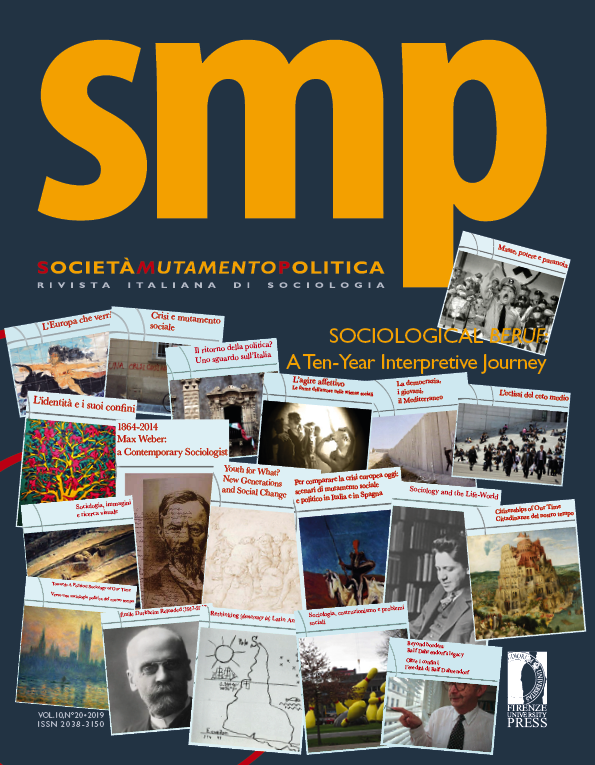Published 2020-01-16
Keywords
- Emotions,
- feelings,
- hate,
- nationalism,
- politics
How to Cite
Abstract
It is an established fact that e pervasive climate of hatred is growing in western countries. Especially since “September 11th” such a climate has become a specific connotation of a type of society as well as an element of crisis of liberal democracy. It is also established that both the style of communication and the electoral growth of nationalist populisms have enormously helped to spread the climate of hatred in western countries. At some time, as many observers have pointed out, it is a fact that emotions and feelings, of which hatred is the most relevant expression, are the major agents of such a climate. By referring to this phenomenology, in this article an attept is made to show how the climate of hatred is largely the product of a specific type of political communicative strategy which belongs to organizations professing nationalist sovereignty. The first part will show how a general state of anxiety is produced in a world marked by uncontrolled finalcialization, pervasive neo-liberalist ideology, and acelerating technological change. The second part of this aricle will delve into several stages of the process of transforming anxiety into hatred that nationalist sovereignty groups, in the absence of a solid basis of collective feelings, are able to activate thanks to a politics of emotions.


